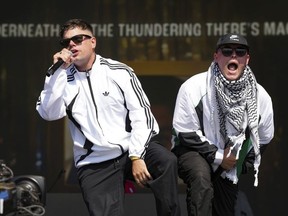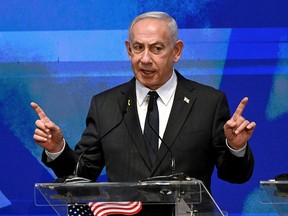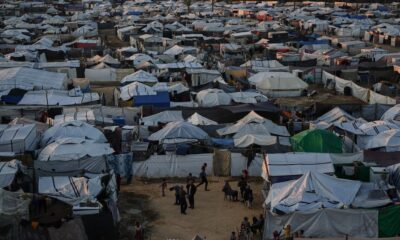Top Stories
Hungary Bans Irish Rap Group Kneecap from Sziget Festival

UPDATE: Hungary has officially banned members of the Irish rap group Kneecap from entering the country ahead of their scheduled performance at the Sziget Festival on August 11. Authorities claim the group’s presence poses a significant risk to national security, citing concerns over their controversial political statements.
The Belfast-based trio, known for their anarchic lyrics and symbolism related to the Irish republican movement, have faced backlash for their music, which includes explicit references and political statements that some interpret as supportive of militant groups like Hamas and Hezbollah. In a decisive move, Hungary’s National Directorate-General for Aliens Policing announced on Thursday that members Naoise “Caireallain,” J.J. “Dochartaigh,” and Liam “g “hAnnaidh” would be prohibited from entering Hungary for a period of three years.
Government spokesman Zoltan Kovacs took to social media platform X to reinforce this stance, describing the band’s lyrics as containing “antisemitic hate speech and open praise for Hamas and Hezbollah.” This ban follows mounting pressure from Hungarian officials and cultural organizations, including a petition signed by hundreds demanding the cancellation of Kneecap’s performance at the festival.
Hungary’s Minister for European Affairs, Janos Boka, emphasized the government’s zero-tolerance policy toward antisemitism in a letter to festival organizers dated July 11. The controversy surrounding Kneecap has sparked intense debate and division within the music community, especially as the group has gained international attention.
Earlier this year, Kneecap performed at the Coachella Valley Music and Arts Festival in California, where they made strong statements against Israel, accusing the government of genocide against Palestinians. This led to calls for their U.S. visas to be revoked and resulted in several canceled gigs.
The decision to ban Kneecap is unfolding amid rising tensions in Europe concerning freedom of expression and the impact of political statements in the arts. As the Sziget Festival approaches, the implications of this ban extend beyond music, raising significant questions about artistic freedom and national security in Hungary.
This developing story continues to draw attention, and many are watching closely to see how it unfolds. The situation remains fluid, with further updates likely as the festival date approaches.
-

 Politics4 weeks ago
Politics4 weeks agoSecwepemc First Nation Seeks Aboriginal Title Over Kamloops Area
-

 World5 months ago
World5 months agoScientists Unearth Ancient Antarctic Ice to Unlock Climate Secrets
-

 Entertainment5 months ago
Entertainment5 months agoTrump and McCormick to Announce $70 Billion Energy Investments
-

 Science5 months ago
Science5 months agoFour Astronauts Return to Earth After International Space Station Mission
-

 Lifestyle5 months ago
Lifestyle5 months agoTransLink Launches Food Truck Program to Boost Revenue in Vancouver
-

 Technology3 months ago
Technology3 months agoApple Notes Enhances Functionality with Markdown Support in macOS 26
-

 Lifestyle3 months ago
Lifestyle3 months agoManitoba’s Burger Champion Shines Again Amid Dining Innovations
-

 Top Stories2 months ago
Top Stories2 months agoUrgent Update: Fatal Crash on Highway 99 Claims Life of Pitt Meadows Man
-

 Politics4 months ago
Politics4 months agoUkrainian Tennis Star Elina Svitolina Faces Death Threats Online
-

 Sports5 months ago
Sports5 months agoSearch Underway for Missing Hunter Amid Hokkaido Bear Emergency
-

 Politics5 months ago
Politics5 months agoCarney Engages First Nations Leaders at Development Law Summit
-

 Technology5 months ago
Technology5 months agoFrosthaven Launches Early Access on July 31, 2025





















